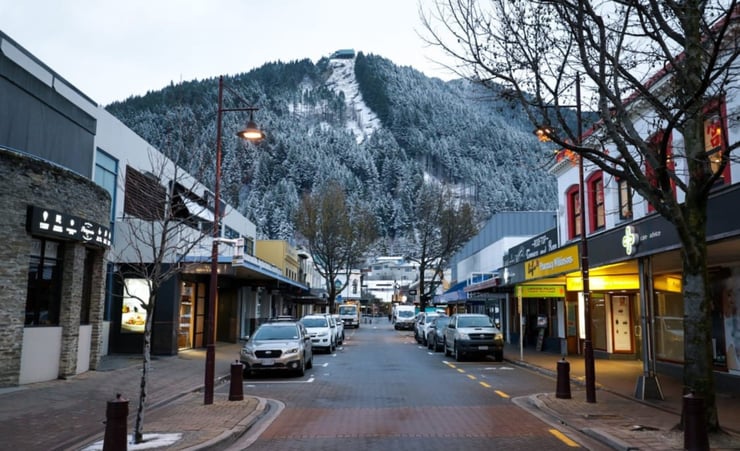More than 25 people sharing facilities at one house, charged $250 each a week, migrant says

A Queenstown migrant worker says she is being charged $250 a week to live with more than 25 other people in a poorly kept, overcrowded property.
The woman, who asked to remain anonymous, told RNZ their landlord was taking advantage of desperate people.
The migrant worker lives with her partner in one of seven cramped bedrooms, each shared by two to three people.
A further 15 people live outside in illegal cabins or in the garage, sharing the house's kitchen and two bathrooms, and each paying $250 a week.
The worker said their landlord illegally evicted the tenants in the garage after the housemates complained about the poor living situation.
This month, the workers spent two days without electricity - unable to use heaters, cook or have a hot shower - as the property could not cope with the number of people who lived there.
When they complained, she said their landlord told them they should turn off the heaters, in a town that could experience sub-zero temperatures.
The woman arrived in Queenstown two months ago, and started off living in a hostel.
This house was one of the few rentals available - they are in high demand and difficult to find.
While she does not want to live in cramped, overcrowded and poor quality property, she does not want to live in a car either, which she says others have resorted to.
For now, she and the other tenants are trying to work out how to improve their situation.
Another migrant worker who spoke on the condition of anonymity said she was given 28 days' notice to leave her rental due to the landlord undertaking renovations.
She has been living in Queenstown for a year as an accredited worker.
"My fear came true," she said.
"It's scary because obviously I have been living here for a year. I would like to live here longer. I have a job and I don't want to leave.
"It's winter. The conditions are cold, and I know many people living in their vans, in their cars. I don't have even a car. It brings a lot of instability and fear."
The Residential Tenancies Amendment Act 2020 said that a landlord may terminate a periodic tenancy by giving at least 90 days' notice if they planned to carry out extensive renovations.
While she planned to try and fight for the notice period she was due, she wanted to see more controls put in place to avoid this from happening to others and to keep a cap on rental rises and landlords from taking advantage of their tenants.
In some cases, she knew people paying $300 to $400 for a room.
"People come here to create a life, to have a life, to have stability, and suddenly their landlords kick them out and they have to live in a hostel after living five years in Queenstown, is something that literally blows my mind."
Meanwhile, Queenstown Lakes District councillor Matt Wong said the housing crisis - while it has been building for decades - was the worst it has ever been.
"We know there are enough houses being built and there's enough free, available housing, it's just not accessible," Wong said.
The council was working with organisations supporting tenants and workers while also lobbying central government, he said.
"If there was an easy solution, if there was an easy lever, it would have been pulled well in advance. It would have been done by now."
Instead, he said it was time for central government to intervene.
"Central government needs to step up, give us some powers - even for three to six months, just to get us through this winter, get us through this really hard time so we can start building on the long term fixes that we need."
Hundred of people were looking for a place to live while plenty of houses sat empty, including some council properties.
He said many of them did not meet the government's Healthy Homes standards.
The Healthy Homes standards include minimum requirements for heating, insulation, ventilation, dampness, drainage and draught stopping.
More than 30 cabins owned by the council on the Lynch Block site are among those sitting empty.
The cost of getting the properties up to the government's Healthy Homes standards was a barrier, he said.
He urged the government to help to fund bringing them up to standard so they could get homeless people out of their cars and into a home.
Wong, who supported the standards, said he did not understand why rental properties had to meet the standards, but short-term rentals and holiday homes did not.




.jpg)
